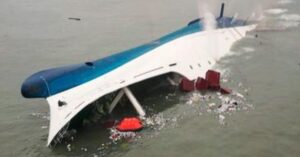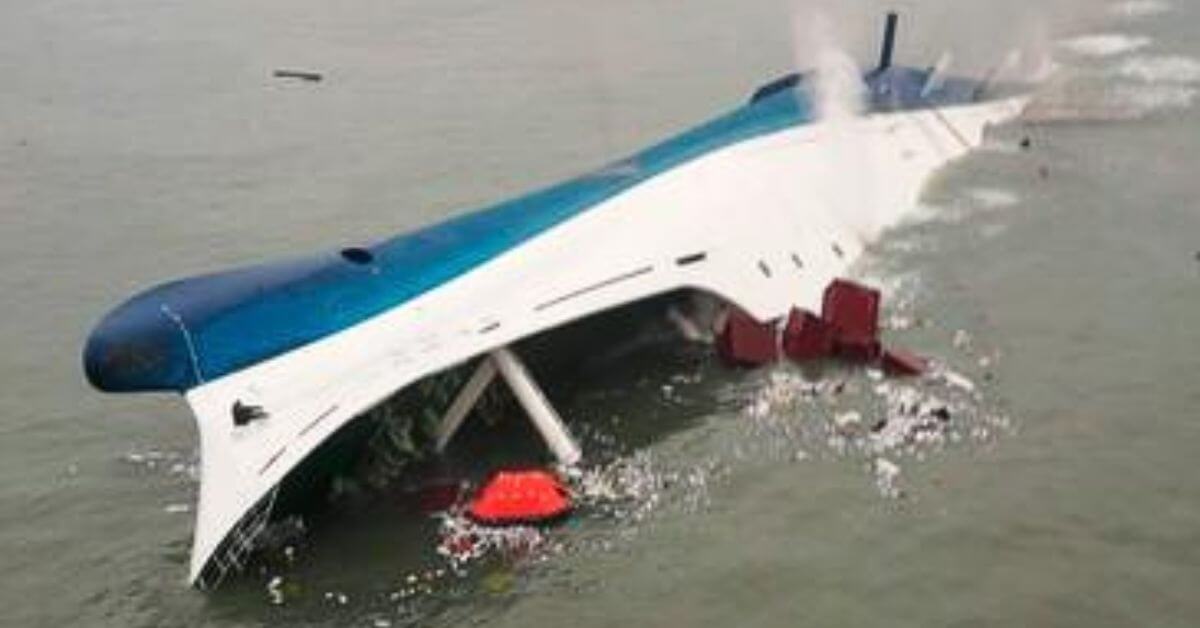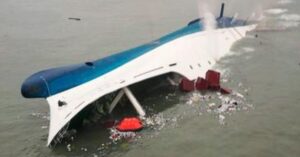
Caspian Pipeline Consortium Completes Black Sea Oil Spill Cleanup After Major Leak
September 3, 2025
World’s First LNG Carrier Engine With VCR Technology Delivered By WinGD & Hanwha
September 3, 2025

A man in his 60s who said he survived the 2014 Sewol ferry sinking was arrested on Monday outside the Ministry of National Defense building in Seoul’s Yongsan District.
Police said he was taken into custody for carrying a weapon in a public space after he demanded to meet the presidential office. The building currently serves as the official residence of President Lee Jae-myung.
According to the Yongsan Police Precinct, the man confronted officers for nearly 20 minutes as they tried to restrain him. During the struggle, police used a taser to subdue him. He received first aid for his injuries and was later taken to a hospital for treatment.
Authorities said he met officials from the presidential Civil Affairs Office after the incident. Following an investigation, the man was released and allowed to return home.
The man had reportedly sought a direct meeting with the presidential office to ask for improved support for Sewol ferry survivors. The Sewol disaster, one of South Korea’s worst maritime tragedies, occurred on April 16, 2014, when the ferry capsised and sank on its way from Incheon to Jeju Island.
At the time, the ship was carrying 476 passengers and crew, including several hundred high school students and teachers on a field trip. A total of 304 people lost their lives, including 261 students who were trapped inside. Many of the students followed crew instructions to stay in their cabins, even as some crew members were seen escaping.
Investigations later found that the Sewol was overloaded, under-ballasted, and structurally unstable because of modifications to its upper decks. The ferry capsised during a turn and sank quickly.
After public pressure from victims’ families, the wreck was raised and moved to the port of Mokpo for further inspection.
Nine Korea Coast Guard officials were indicted over the vessel’s certification and operation, though they were all acquitted. The ship’s captain was sentenced to life in prison for abandoning passengers during the sinking.
Survivors of the disaster were given 70 days of counseling and were included in a special admissions program that gave them access to top universities. But years later, many have said in interviews with local media that they are still haunted by the tragedy and continue to struggle with mental health issues.
Reference: koreajoongangdaily
Source: Maritime Shipping News


